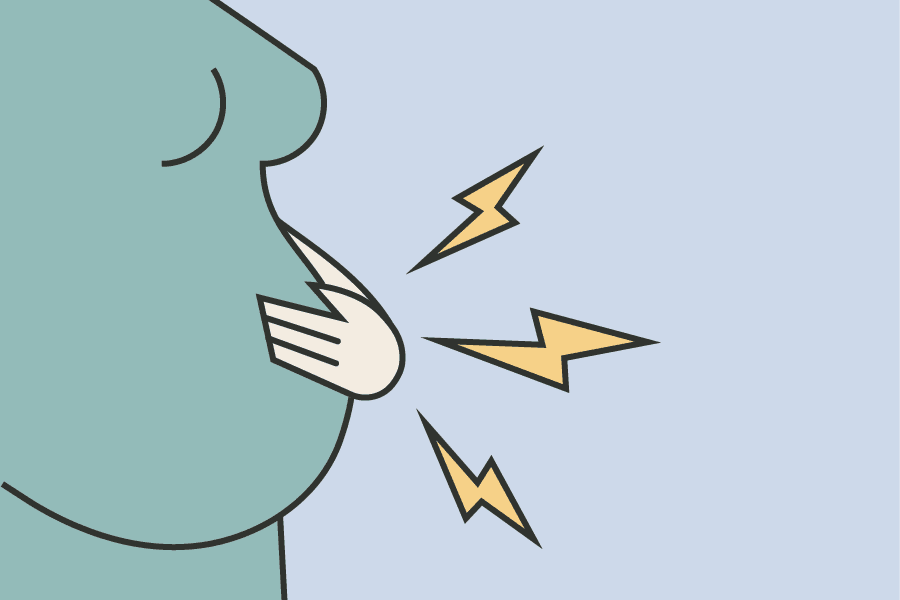Early in the pregnancy, abdominal pain coupled with bleeding could be a sign of miscarriage. Contact your healthcare provider for advice.
As your baby grows and takes up more space, your uterus also grows. It’s common that your abdomen feels differently during pregnancy. You may experience pain or discomfort without there being any cause for concern. You could feel a “pull” in your abdomen, particularly on the sides of your uterus, down toward your groin. You could call these growing pains.
Later in your pregnancy, your uterus can get hard—on and off—a condition called Braxton-Hicks contractions. This is your uterus practicing for the job ahead, working with you to give birth to your baby. These contractions should not hurt, and your uterus will soften again when they pass. If it happens when you are out walking, it could feel like you’re suddenly unable to take normal steps and have to take baby steps until they pass.
Always contact your healthcare provider if the contractions are painful and/or come at regular intervals. This could be a sign of early labor, which is often triggered by a “silent” urinary tract infection for which you will require antibiotics.
If you experience severe abdominal pain higher up, below your ribcage, coupled with a general feeling of unwellness, such as headaches, flickering or increased swelling in your body, contact your healthcare provider immediately. These could be signs of the onset of preeclampsia.
One rare complication is that parts of the placenta can detach. The entire uterus gets hard as a rock and you will feel a sharp pain and strong feeling of discomfort in your entire body. If this happens, get medical care immediately.
But in most cases, a little abdominal pain is completely normal and simply growing pains. Babies have a favorite position in the uterus. Toward the end of your pregnancy, the baby's bottom or foot/knee may press up against one side of your upper abdomen. Although not harmful, it can feel unpleasant. Taking a warm bath, resting and hydrating yourself are ways that can help alleviate some of the growing pain.
Source:
- Lärobok för barnmorskor. Faxelid, E. Course literature 2001.
- Myles Textbook for Midwives. Fraser, D. och Cooper, M. Churchill Livingstone 2003.
